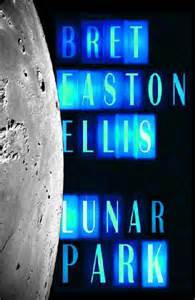 By BRET EASTON ELLIS (Knopf; 2005)
By BRET EASTON ELLIS (Knopf; 2005)
In which literary darling Bret Easton Ellis, who previously roiled the horror community with AMERICAN PSYCHO, takes another swipe at the scary stuff. LUNAR PARK pointedly references the previous novel, and pissed off horror writers nearly as much; as the genre scribe Michael Marshall Smith none-too-sweetly inquired, “how come this (admittedly very good) book winds up on the tables in the front and center of the store, when horror people end up exiled to the shelves in back?” That I can’t adequately answer, but I will concur with Smith’s overall verdict: Ellis’s novel is indeed very good.
It’s also, despite Knopf’s misleading packaging, very much a horror novel that was admittedly conceived as a tribute to Stephen King. That’s no surprise, as it utilizes one of King’s favorite concepts: that of a novelist losing his mind in a haunted house. Said novelist, in what is certainly the book’s most audacious touch, is Bret Easton Ellis himself.
LUNAR PARK begins with a summary of Ellis’s life and career, marked by rampant hedonism and substance abuse after the enormous success of his first novel LESS THAN ZERO and the equally enormous controversy inspired by AMERICAN PSYCHO. Ellis claims that by the year 2000 he (mostly) staunched his excesses, married the (fictional) Hollywood actress Jayne Dennis and moved into a lush suburban house.
In actuality Ellis was a bachelor residing in NYC when this book was published. It’s a what-might-have-been account, with Ellis imagining himself living the life of many of his successful writer contemporaries, complete with children and a lucrative teaching gig at a local college.
But there’s trouble in paradise, which begins at a costume party during which Ellis glimpses a character outfitted like AMERICAN PSYCHO’S protagonist Patrick Bateman. This individual turns out to be a college student who it seems is stalking Mr. Ellis. There’s also a creepy doll owned by Ellis’ daughter that seems disturbingly lifelike, while his house undergoes creepy permutations and a number of children suspiciously disappear from the neighborhood. Clearly an evil presence is afoot that would appear to emanate from Mr. Ellis himself; to defeat it he’ll have to confront the demons of his past, including the abusive specter of his recently deceased father.
Faux-memoir, supernatural thriller and fictional treatise on the legacy of AMERICAN PSYCHO: LUNAR PARK is all those things, and gels into an odd yet satisfying whole that works on several levels (what doesn’t work are the distracting futuristic trappings, with the proceedings supposedly taking place in a hazily imagined dystopia where terrorism predominates). It’s a definite anomaly in the Bret Easton Ellis cannon, which is typified by the elegant nihilism of LESS THAN ZERO and AMERICAN PSYCHO. LUNAR PARK by contrast is chilling, yet also deeply reflective, and, in the phantasmagoric conclusion, quite touching, conclusively demonstrating that a good writer can accomplish wonders in the horror field.
